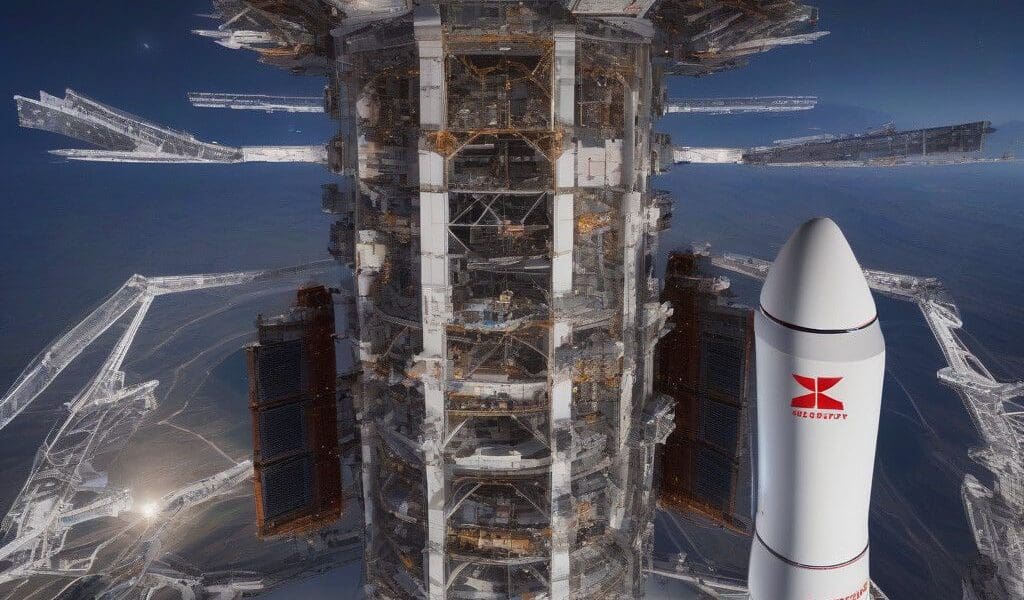Eutelsat to Partner with Mitsubishi for H3 Rocket Launches
Mitsubishi Heavy Industries (MHI) has made headlines by securing a landmark agreement with Eutelsat, one of the world’s largest satellite operators. This partnership signifies Eutelsat’s decision to utilize Mitsubishi’s H3 rockets for future satellite launches, beginning in 2027. The deal aligns with Japan’s aspirations to enhance its visibility and influence in the global space launch market, especially following a hefty investment of $1.5 billion aimed at making the H3 program competitive.
This development comes on the heels of Eutelsat’s recent merger with OneWeb, positioning the company against formidable players like SpaceX’s Starlink in the burgeoning low-Earth orbit communications sector. By securing Mitsubishi’s H3 rockets, Eutelsat gains access to a reliable and cost-effective launch solution that could prove vital in its competition against SpaceX and similar ventures.
The H3 Rocket Project
Overviewing the H3 project, it aims not only to reduce satellite launch costs significantly, targeting about $33 million per mission, but also to ramp up operational capacity to ten launches a year. This ambitious plan indicates Japan’s intent to cater to the growing international demand for satellite launches. With increasing reliance on satellite networks for internet connectivity and communications, MHI’s strategic approach embodies a proactive response to the evolving demands of the global satellite market.
MHI’s commitment to bringing H3 rockets into the commercial space race highlights the surge of interest in this sector, where competitors include Blue Origin, Boeing-Lockheed’s Vulcan, and Europe’s Ariane 6. The successful maiden flight of the H3 earlier this year is a promising indicator of its capabilities and potential, paving the way for more launches.
Strategic Implications for Eutelsat
As Eutelsat continues to broaden its horizons, its collaboration with Mitsubishi not only enhances its launch capabilities but also complements its strategic goals. The partnership signifies Eutelsat’s endeavor to ensure reliable satellite deployment, which is critical given the rapid pace of technological advancements in satellite communications.
The global satellite market is intensifying, with numerous companies expanding their satellite fleets to accommodate increasing demand for connectivity solutions. MHI’s H3 project, thus, presents a timely opportunity for Eutelsat to solidify its offerings in a highly competitive landscape. The deal also reinforces Japan’s broader ambitions in space exploration and satellite technology.
Competitive Landscape in Satellite Communications
The landscape of satellite services is shifting, with competition heating up as companies strive to establish their presence in low-Earth orbit communications. After its merger with OneWeb, Eutelsat now faces direct competition from SpaceX’s Starlink, which has rapidly become a leader in the sector by offering extensive satellite Internet coverage at competitive pricing.
Other industry players, such as Jeff Bezos’ Blue Origin and the Boeing-Lockheed joint venture, Vulcan, are also preparing for launches, which will further saturate the market. This competitive environment means that for Eutelsat to maintain its position as a key operator, it must continuously innovate and ensure that it provides superior service and reliability.
Conclusion
As the partnership between Eutelsat and Mitsubishi Heavy Industries develops, the implications for both firms and the satellite launch industry at large are increasingly profound. Eutelsat’s choice to engage with MHI’s H3 rockets reflects a strategic move to enhance its launch capabilities in the face of mounting international competition. With Japan prioritizing advancements in its space program, the H3 project’s expansion could provide Eutelsat with the edge needed in an overcrowded marketplace.
The importance of reliable, cost-effective satellite launches cannot be overstated in today’s digitized world, where connectivity is paramount. As this dynamic unfolds, stakeholders will be keenly observing how Eutelsat and Mitsubishi navigate this burgeoning market.








